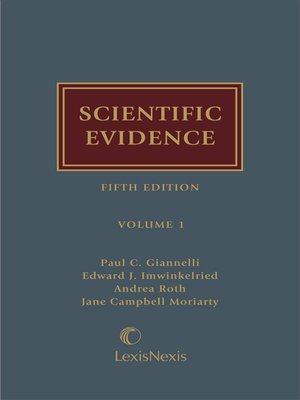
Sign up to save your library
With an OverDrive account, you can save your favorite libraries for at-a-glance information about availability. Find out more about OverDrive accounts.
Find this title in Libby, the library reading app by OverDrive.



Search for a digital library with this title
Title found at these libraries:
| Loading... |
Cited by the National Academy of Sciences in its February 2009 report on the nation's forensic science system as the resource for learning about the latest forensic techniques and scientific concepts used in collecting and evaluating evidence, and by the U.S. Supreme Court in Daubert v. Merrell Dow and, most recently, Melendez-Diaz v. Massachusetts, Scientific Evidence is authored by two of the nation's foremost authorities on the subject. Organized logically and written in clear terms for the active litigator, Scientific Evidence first covers rules and precedents relating to admissibility, constitutional limitations, discovery, expert testimony, laboratory reports, and chain of custody. It then analyzes the most frequently encountered scientific evidence and the latest developments in scientific evidence, such as hypnotically-refreshed testimony, DNA technologies such as RFLP and PCR, computerized accident reconstruction, securing expert assistance, questioned document examination, and bite mark comparison.
Now more than ever, it's imperative that defense counsel, prosecutors, civil litigators, and judges keep abreast of scientific techniques to demonstrate or disprove a connection between forensic evidence and an individual. This two-volume resource provides:
Two volumes.






